In July 2016, just two months after finishing the build of our masia (house in the countryside) in Spain, we soft-opened our bed & breakfast to friends and family. A B&B had always been the plan for financially supporting our lives in Spain: while we had saved up for years to do this, we were both in our 30s when we moved and neither of us was financially or mentally ready to retire.
We thought we were perfectly equipped to do this, too; I had worked in the service industry most of my life and hubby was no stranger to hard work. A bed and breakfast seemed like something I’d be able to combine with my online business, and hubby’d take care of the house and property in his downtime.
There were so many things we didn’t take into account though – some we should have known, others we couldn’t. If you’re thinking about opening a hotel or B&B in a remote location, or maybe simply curious to know why we closed ours over COVID, read on.
1. Simple math doesn’t always add up
The original plan seemed logical: add three guest rooms with en-suite bathrooms and a separate sitting room to our house. We’d run the B&B while building three smaller rental units on our property and later, our children would move into the guest rooms, and we’d just rent out the other units.
In reality…
We soon realised the investments needed to build the house far outran the money we could ever make from it. We had a couple of misunderstandings about what was included in the construction project and what wasn’t – and we ran out of money toward the end, which was mostly reflected in the outdoors and landscaping.
We also underestimated recurring costs like having to buy new bedsheets and towels regularly, repainting, and other maintenance. These might seem like obvious expenses, but when you’re calculating your business plan, it’s easy to focus on the big numbers and forget the constant drain of small ones.
2. The competition wasn’t who we thought it was
We made our business plan looking at other off-grid guest accommodations in the area, thinking these were our competition – or, to put it nice, those were companies we could compare ourselves with. We were wrong.
Our real “competition” were the small family-owned hotels in the villages, where you could get a room for €20 a night and a three-course meal for less than €10 (back in 2016). These (usually lovely!) people can afford low prices because the house has been in the family for generations (no rent or mortgages), and with several rooms rented out simultaneously and (often) family helping out, they’d have low operating costs.
Most of the off-grid accommodations (outside the villages) in our area were fancy hotels, often working with top chefs, high-end accommodations, and sparing no expenses to give their guests a luxurious experience. And while some did call themselves “farm stay” and might have kept chickens or other small animals (far away from guest rooms), they were nothing like what we were trying to do.
Especially in the first years, most of our bookings came through websites like booking.com or AirBnB – these took a big piece of the cake (and that cake wasn’t as big as we thought it’d be). Most of the time, we’d make our rooms available at € 49 to € 59 – taking into account that we only had two units to start with, and that booking sites took 10-15%, it barely covered daily running costs.
Good thing I also worked online during off hours: I’d usually take the breakfast shift (and tried to get some computer work done if guests slept in or between two groups), we’d both be on cleaning duty, and hubby would take over in the evening so I could get more paid work done.
3. Guests often don’t read (or look at pictures)
Many of our guests did not have any idea where they’d end up, especially in the beginning when most came through general booking sites. We’d get feedback saying we were too far from town, the road to our farm was muddy, we didn’t have the one thing they liked to eat for breakfast.
We tried written warnings (the road can be muddy and slippery when it rains, we’re 5-10 minutes away from villages and we don’t provide hot meals without reservation, etc) and added more pictures to our profiles that would give guests more context – to no avail; the number of people arriving here and being completely surprised by what they found (often pleasantly, but still) continued to amaze us.
For a while, we were clearly attracting the wrong type of crowd: Spanish couples or families from the city who’d come to Matarranya for a weekend of hiking and biking. They booked with us when the hotels in the villages were full, and while they often clearly loved the place, it was also not what they were looking for. They expected something where you could arrive after a long day, put your feet up while waiting for a hot meal, and get a picnic to go on the next day – but impromptu cooking for two people or getting fresh bread just in case someone wanted a picnic was just not something we could justify.
The people we did want to attract were those looking for a multi-day stay in nature, enjoying a farm-to-table breakfast in the morning before setting out on adventures in the mountains for the days. People who loved the idea of living completely off the grid for a little bit, and maybe aspired a similar lifestyle themselves. And while we had some of those guests through our social media efforts in the beginning, it took us a while to get on alternative booking sites as the good ones had much stricter (and longer) application processes than booking.com.
One of our last groups even arrived in suits and stilettos, thinking they had hit the jackpot and booked a luxury remote hotel for a bargain; they weren’t expecting a simple farmstay like ours. The disconnect between expectations and reality created awkward situations and while friendly service goes a long way, it can’t magic a bridge between both.
Thankfully, those types of guests soon became a minority – high season (spring + summer holidays) would often be fully booked far in advance by people who couldn’t wait to spend some time in the middle of nowhere, and after a while we’d only open up rooms on booking.com when we needed to fill a gap.
4. Bureaucracy is a bottomless pit
Besides both of us paying over €250 each of “autonomo” (a contribution to social security etc. that you pay in Spain when you’re self-employed), on top of running costs, insurances, and the accountant, we found ourselves paying for paperwork left and right in the process to get all the right permits.
Turns out it’s hard to get a tourism license when your building isn’t connected to main water or to the main road. At each step, we learned we needed something done – e.g. a technical bureau needed to do an environmental assessment (ka-ching), or a water sample would need to get sent to a lab (ka-ching), etc.
We saw it with others (who tried to do similar things to us) as well: every time you’d think you had everything to get “the” license, it turned out there was another hurdle to jump. We even had friends who thought they had all their licenses (after years of concentrated efforts and investments): permission from the comarca (local region), from town hall (the ayuntamiento), from the province of Teruel, even registration with the local police (guardia civil) – only to officials at their doors to tell them they needed something from the state of Aragon as well.
5. Time is a limited resource
The B&B took up a lot of our time, especially in summer when we were fully booked for weeks on end. Getting up early to cook breakfast (often by 7am) and being on stand-by until the last guest had finished (sometimes past 11), then cleaning rooms and making beds (often during the hottest times of the day), before waiting for the next guests to check in – and they rarely arrived when they thought they would.
It consumed every moment of our day, especially in summer when we were fully booked for weeks on end. Our daily rhythm was dictated by guest needs: getting up early to bake bread and sticking around until the last guest finished breakfast, then cleaning rooms and making beds during the afternoon heat, before waiting for the next guests to check in – and guests would rarely arrive when they said they would.
What we hadn’t considered was the timing conflict between guest service and garden maintenance. We had big dreams of being self-reliant (growing our own food, and ideally food for our guests as well), but the only bearable times for gardening in summer were early mornings and just before dark – exactly when we needed to be preparing breakfast or spending time with guests. This made the dream of offering farm-to-table meals to our guests a bit of a juggling act, and we often resorted to buying food elsewhere.
We’d usually close during winter, mostly for practical reasons: no guest wants to be trapped in their room during winter storms, most cars wouldn’t be able to make it up our mountain after heavy rain or snow, and not to forget our systems weren’t built to keep all rooms in the house toasty warm and all appliances running on battery power when the sun didn’t show for days. Winter was the time to catch up with all the things: sleep, maintenance, and much-needed quality time with each other or with friends.
6. Having people in your house 24/7 is stressful
One thing we really hadn’t expected, was that having guests in our house constantly would stress us out. I didn’t get much sleep at night for fear that guests wouldn’t find their way back here after a night out (happened once or twice) or that strange sounds would keep them awake (e.g. the dog going after a fox in the middle of the night).
While we really enjoyed guests taking part in farm life (children helping to feed chickens, couples watching the alpacas from their balcony, the dogs getting extra cuddles), there also wasn’t much privacy – people were often watching while we did our chores, worked in the garden, or did maintenance work around the farm.
And we didn’t feel like we could both leave the property at the same time, because maybe a guest might need us. This constant feeling of being “on call” made us stressed and irritated, which had an effect on our relationship as well. Thankfully, we’d have the winter months to recover.
The pivot from bed and breakfast to “just” guest accommodations
After two seasons of this, we pivoted: we took away the breakfast part of the Bed & Breakfast, and started renting out the guest accommodation with self-service access to the downstairs kitchen. We stopped advertising on booking.com (most of the time) and focused on alternative websites like Natuurhuisje (Nature House) or farmstay booking sites that brought us a very different type of guests.
We no longer allowed bookings for one night, and started marketing our place to guests from abroad, who would come and stay for several days. We still provided our guests with fresh eggs, home-made bread, seasonal produce and jams, and the occasional home-grown dinner. This new arrangement freed up a ton of our time – I was now able to focus more on working online, which became our main source of income.
Lockdown as the path to freedom
Then in March 2020, we were all gearing up for a new season when COVID hit – and it all came to a halt. We had to cancel all guests for the spring and even when we were allowed to re-open with restrictions, it wouldn’t have made sense: the one room we’d be allowed to rent out just couldn’t make up for the investments we’d have to make to open for the season.
Instead, I started working full-time in my online business. We kept the money we had set aside for repairs and maintenance. And we experienced the freedom of not having to take others into account day in, day out. By the end of that year, I was making more per day working online than we’d usually get from our guest accommodations per night… and without the physical work and the extra investments.
When the government finally allowed us to reopen fully… we decided to close the B&B instead. We haven’t looked back since.
If you’re dreaming of opening a rural B&B, I’d suggest visiting several similar accommodations in your target area and having honest conversations with their owners before making plans. The reality is both more challenging and more nuanced than most business plans can capture.
Simple living is not simple – and sometimes the simplest decision is to close a door so others can open.

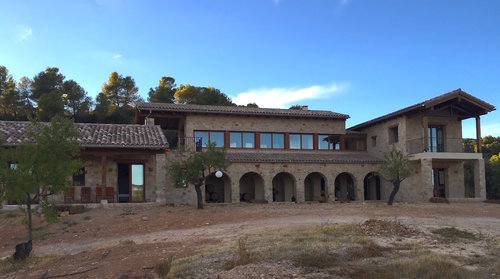
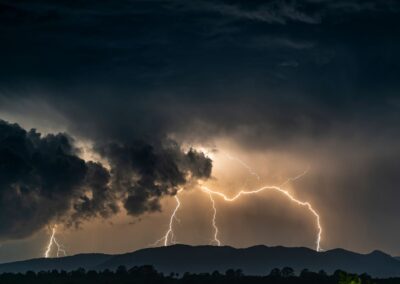
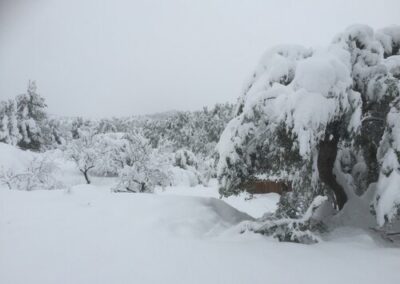
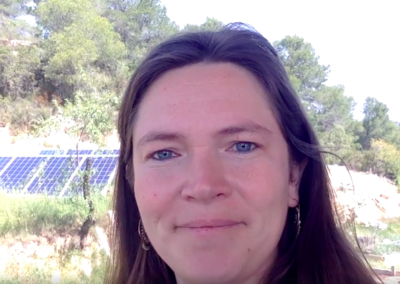
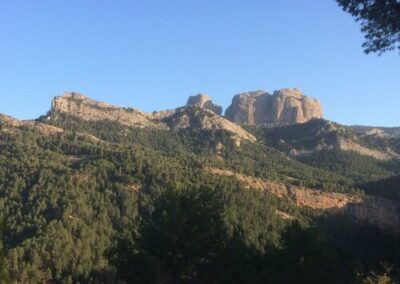
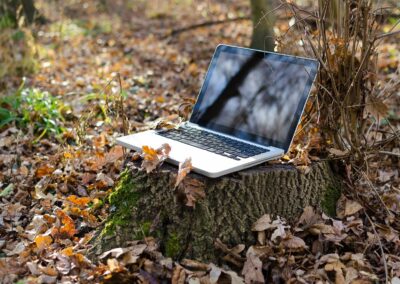
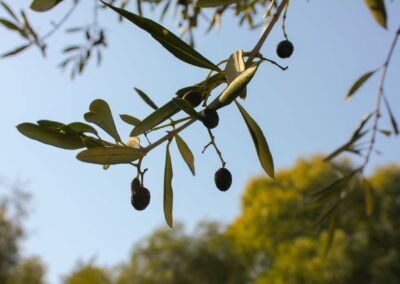
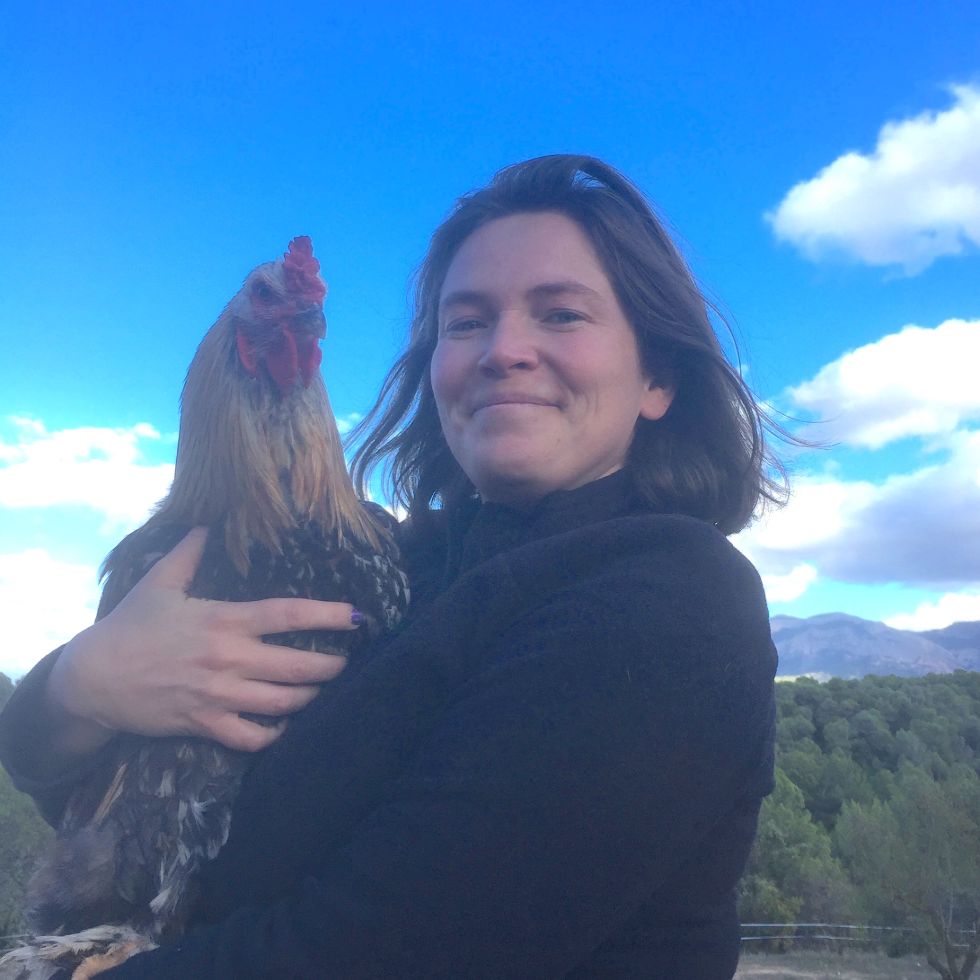
0 Comments